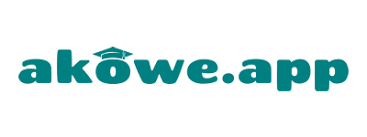
Examining Akowe, a Nigerian EdTech Startup Using Blockchain to Revolutionise Academic Certificate Issuance.
One of just two blockchain startups from Africa competing in the TechCrunch Disrupt’s 2023 business Battlefield 200 is Akowe, a blockchain business based in Lagos, Nigeria.
In order to increase the security and transparency of academic credentials, Akowe has developed a blockchain-based platform for the issue of verified academic records.
Ayodeji Agboola, the founder of Akowe, noted in a recent interview that Sub-Saharan Africa has a high demand for digital certificate verification solutions. He claims that the difficulties involved in reissuing academic records and the universities’ possessiveness over these records are some of the factors that are driving this desire.
These problems are addressed by Akowe’s blockchain-based technology, which offers an easy-to-use method for securely confirming academic credentials.
A training programme to teach a group of small company owners how to utilise Facebook successfully was previously started by Agboola in 2018. By 2019, this programme had successfully trained 30,000 people, and it was necessary to give course participants verifiable proof of completion. The blockchain-based platform for issuing and verifying academic records developed by Akowe was a result of this necessity.
We couldn’t find a tool that was particularly straightforward to use, so I said, “You know what? Let’s construct this,” he said. “So, it was late 2020. In three weeks, we finished building it. We tested it out. For our own certificates, we tested it. It worked fine. I said, yeah, we’re in business.”
“In Nigeria, in Africa, [blockchain] needs to be a utility that people can actually see and use and solve their problems,” Agboola added. Agboola claims that storage is the main function of the blockchain on the Akowe platform. Organisations start by submitting a list of recipients’ names and their certificate templates. The digital copies of each person’s academic records are then automatically created by Akowe and safely kept on the blockchain.
The academic records are made tamper-proof and easily verifiable by this method, which also guarantees their integrity and accessibility. Recruiters and visa officers can access and evaluate all pertinent metadata on the Akowe blockchain if they need to confirm a candidate’s college diploma.
The metadata typically includes information such as:
• The URL of the certificate’s hosting location (often a school’s website)
• University names
• Student names
• Courses
• Grades, and
• The year of graduation
The blockchain acts as a reliable, secure, and unchangeable source for confirming the accuracy of academic data, promoting openness and confidence in the verification process.
Akowe had been using the permissioned blockchain technology called Hyperledger for its system, however it is now rumoured that the company is switching to Amazon’s new ledger database technology called QLDB.
“The immutable ledger gives it the security, the tamper-proof nature, and all that you actually need so that you can then be very sure to verify anyone who wants to verify the credentials,” the founder said.
Akowe offers its platform free of charge to colleges, but it makes money by collecting a cut of the fees those institutions charge students who use it to verify their academic records.
The startup is currently in the final stages of setting up pilot programs with two institutions, and is actively engaged in discussions with 15 other universities, indicating a growing interest in its blockchain-based verification solution within the education sector.
One of the biggest challenges Akowe has faced is around the perceptions with blockchain.
“In the beginning, we were always very open to say, hey, blockchain, blockchain. But we then found that [the universities] had a negative connotation or understanding of the concept because they had seen what happened with crypto, and as long as they are concerned, they are all one and the same. So we stopped putting blockchain ahead in the conversation,” said Agboola.
“But when the conversation arises around safety, data, security, data, and privacy, then we say, this is what we’re doing. And it’s very different from crypto and all of that. And then that conversation is a lot better to have.”


